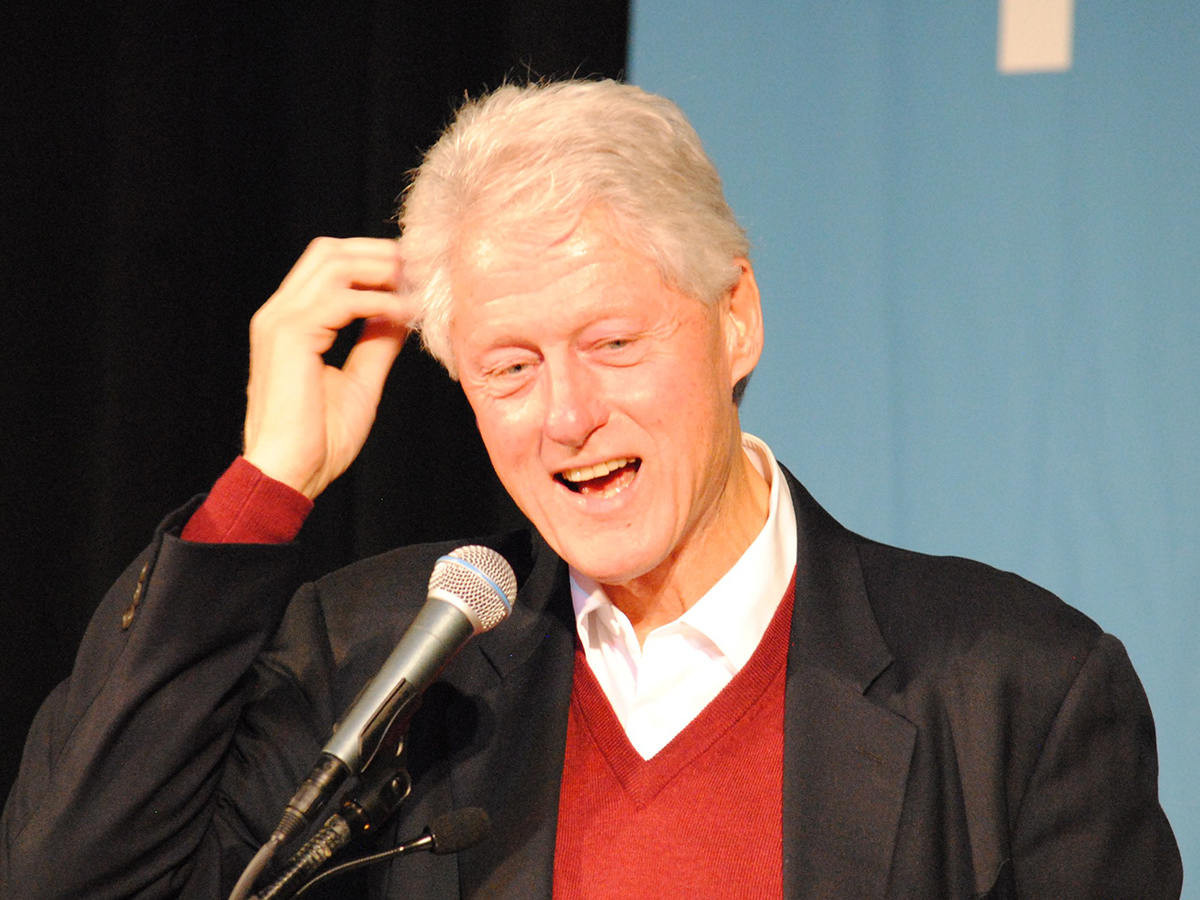Emails Shed New Light on Bill Clinton’s Super Tuesday Stop in New Bedford

Bill Clinton Photo by Eric Austin on Flickr/Creative Commons
Former President Bill Clinton’s visits to two Massachusetts polling places during the state’s primary earlier this month—inside the Holy Name gymnasium in West Roxbury and outside the Buttonwood Park warming house in New Bedford—drew accusations of a violation of state election laws and even voter suppression. Though state officials concluded that Clinton’s megaphone stump speech for Hillary Clinton did not break the law, internal emails leading up to the March 1 primary and its immediate aftermath, obtained via public records request, reveal how New Bedford city officials handled inquiries from an increasingly concerned state Election Commission.
Clinton’s visit was brief— he only spoke for about three minutes. But the speech’s proximity to the polling place, combined with less than 24 hours of notice from the Clinton campaign and crowds of about 2,000 people, by Mayor Jon Mitchell’s own estimate, made for a perfect storm of congestion.
Early Super Tuesday morning, Elizabeth M. Treadup Pio, Mitchell’s spokesperson, reached out to the city’s Department of Public Infrastructure and requested some tidying up ahead of Clinton’s arrival.
“Can you please have our guys do a sweep of trash/debris in that area and arrange for the big, nice sound system to be there?” Treadup Pio wrote. “As it is Election Day, Clinton is not allowed to go into the polling place and must stay 100 feet away…So, we may need to use lots of extension cords or try to tap into the power at a nearby pole instead.”
In one email, assistant chief of staff Kristine Arsenault said the city was told “no stage, no podium, no sound—no public speech,” because the Clinton campaign declined the sound system. A stage was set up in a nearby field, but promptly taken down.
Around noon, Shannon Shreve, counsel in the City Solicitor’s office, received a call from the Elections Division at Secretary Bill Galvin’s office, advising that Clinton must stay 150—not 100—feet from the entrance of the polling place at Buttonwood Park. Michelle Tassinari, the division’s director, added that the Clinton campaign had been made aware of the guidelines.
It would not be the last time Shreve heard from Tassinari on Super Tuesday. “Are there arrangements for voters to still be able to get into the polls? We just received a complaint from a voter who was unable to get near the polling place as it was blocked off because of Bill Clinton’s presence,” Tassinari wrote. “He was unable to vote and will not have an opportunity to go back.”
“Can you call me?” Tassinari emailed Shreve half-an-hour later. “We are getting many calls about the area around the polling places being shut down, per order of the Mayor. This is a BIG problem.” First Assistant City Solicitor Jane Medeiros Friedman confirmed to Tassinari that Mayor Mitchell gave no such order, but Tassinari reached out again once videos of Clinton’s appearance at the polling place surfaced and calls from across the country began pouring in, including one from the Washington Lawyers’ Committee for Civil Rights and Urban Affairs, a nonprofit organization providing pro bono legal services in cases of discrimination.
The next day, a resident called and asked how much the city spent cleaning Buttonwood Park in preparation for Clinton’s visit. “He also wanted to know ‘why did a street sweeper go up down his street 3 times,'” Diane Roy, a special assistant to the Mayor’s Office, told Treadup Pio and Mitchell’s chief of staff, Neil Mello. Treadup Pio denied that Buttonwood Park received any special treatment.
(Treadup Pio could not be immediately reached for this story.)
By the time the city’s elections commissioner, Maria Tomasia, made a radio appearance that afternoon, the situation had gotten sticky enough that Arsenault provided a few “helpful talking points,” including one suggesting Clinton would’ve been positioned further away from the polling place had the media gathered elsewhere.
“Essentially Clinton was forced to speak that close to the entrance because the MEDIA parked themselves there before 9 a.m. The City did not set that up as a staging area,” Arsenault wrote to Treadup Pio in a separate email. “As for breaking the law: I don’t see what others have quoted as the law online. AND—isn’t jay-walking a law? These people that are so concerned about this law should review every law.”

